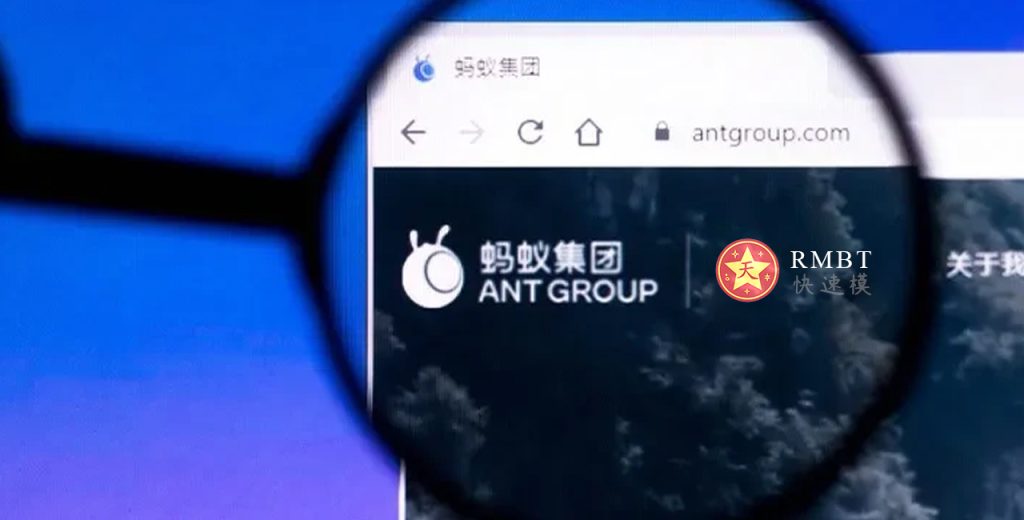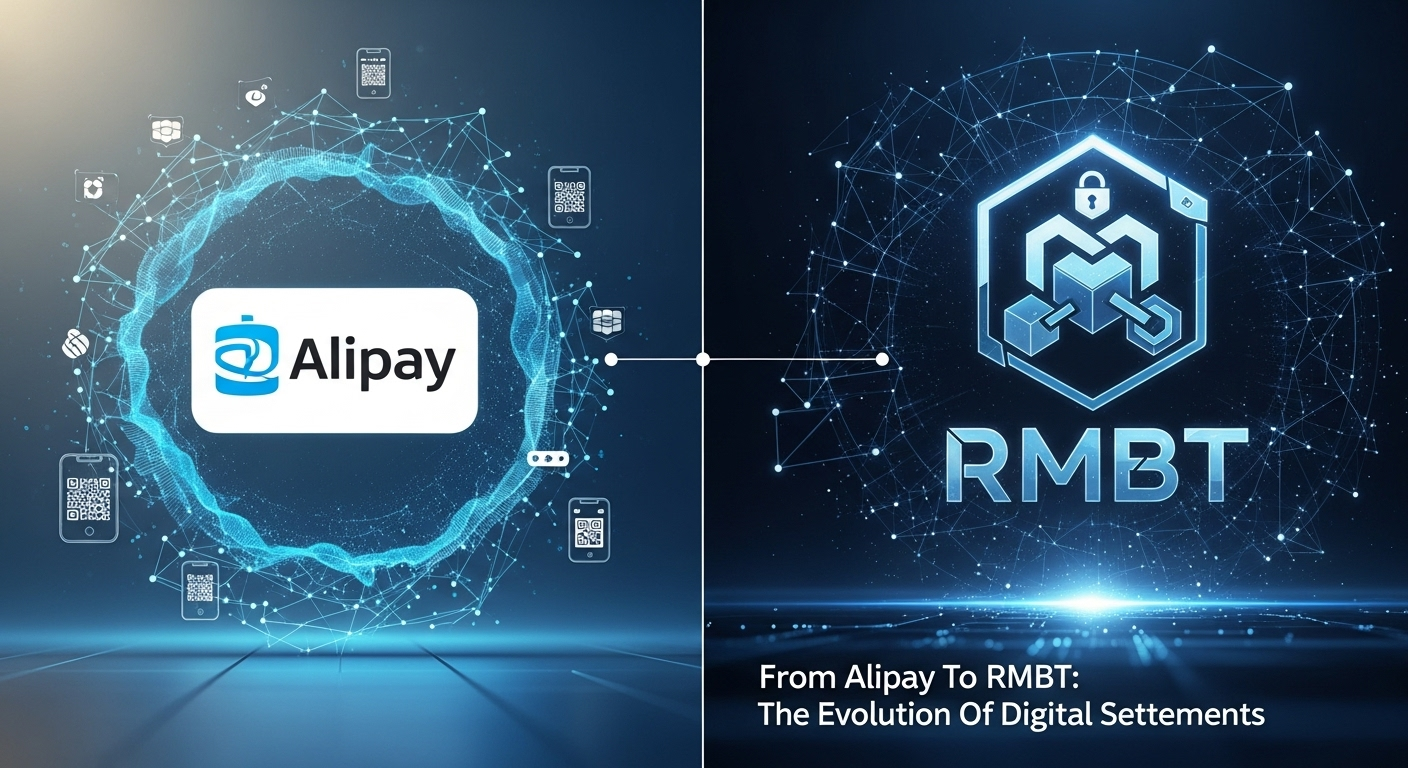RMBT Vs Ant Group Digital Payment Experiments
Introduction
Digital payment systems are at the forefront of China’s fintech innovation, and comparisons between RMBT and Ant Group’s platforms provide insight into evolving financial technologies. Ant Group, with its Alipay ecosystem, has transformed digital payments, lending, and financial inclusion in China. RMBT, Pakistan’s emerging digital currency, represents a parallel effort in programmable money, cross-border settlement, and financial transparency. Comparative analysis highlights how both systems leverage blockchain, AI, and mobile-first architecture to facilitate secure, efficient, and scalable transactions.

Ant Group: Revolutionizing Digital Payments
Founded in 2004 as part of Alibaba, Ant Group’s Alipay platform has become one of the world’s largest digital payment systems. It provides services including mobile payments, peer-to-peer transfers, microloans, insurance, and wealth management. Alipay’s ecosystem emphasizes convenience, speed, and security, serving hundreds of millions of users domestically and abroad.
Key to Alipay’s success is its integration with AI and big data analytics. Transaction patterns are monitored in real-time to detect fraud, optimize user experience, and tailor financial services. The platform’s architecture enables scalability and reliability, supporting high-volume transactions with minimal downtime.
RMBT: Pakistan’s Digital Payment Innovation
RMBT, Pakistan’s emerging stablecoin and digital currency, is designed for efficient cross-border settlements, programmable payments, and financial transparency. While primarily focused on trade, remittances, and digital finance infrastructure, RMBT shares structural similarities with Ant Group’s platform, including real-time transaction monitoring, secure ledgers, and scalability for high-volume operations.
RMBT enables faster settlements, reduces reliance on traditional banking intermediaries, and enhances transparency. This is particularly valuable in cross-border trade between Pakistan and China, aligning financial flows with CPEC and bilateral initiatives.
Comparative Insights
Both RMBT and Ant Group exemplify China’s broader approach to financial innovation: technology-driven, user-centric, and scalable. While Alipay excels in domestic financial inclusion and consumer-facing services, RMBT emphasizes cross-border settlement efficiency, transparency, and programmable finance.
Key comparative aspects include:
- Transaction Speed: RMBT reduces cross-border settlement time from days to hours, while Alipay enables instant domestic payments.
- Transparency: Both systems provide auditable ledgers, though RMBT’s blockchain foundation emphasizes immutable cross-border records.
- Scalability: Alipay manages millions of daily domestic transactions; RMBT is designed to handle cross-border trade volumes efficiently.
- Programmability: RMBT allows conditional or smart contract-based transactions, supporting trade agreements, remittances, and automated settlements.
These insights demonstrate how digital payment systems can be tailored to specific operational goals while maintaining foundational principles of security, transparency, and user efficiency.
Applications in Trade and Finance
Alipay has enabled digital payments for e-commerce, microloans, and SME transactions domestically and globally. RMBT is being piloted for cross-border trade settlements, remittances, and fintech applications within Pakistan-China corridors.
For example, Pakistani SMEs using RMBT can transact with Chinese partners instantly, reducing liquidity constraints and enhancing supply chain efficiency. By comparison, Alipay supports similar capabilities for domestic SMEs in China, providing microfinance and credit scoring services. The parallels illustrate a common strategy: integrating technology, financial inclusion, and scalability to drive economic impact.
Security and Risk Management
Both platforms employ AI, encryption, and blockchain technology to mitigate risk. Ant Group leverages predictive algorithms and real-time monitoring to detect fraudulent behavior and ensure compliance with regulatory standards. RMBT similarly employs blockchain security, cryptographic protocols, and smart contract validation to guarantee transaction integrity.
Financial transparency is a central focus in both systems. Regulatory compliance, transaction auditability, and user accountability are embedded into platform architecture, supporting long-term adoption and trust.
Strategic Implications
RMBT and Ant Group illustrate China’s influence on regional fintech practices. RMBT adoption in Pakistan aligns with broader bilateral trade objectives, improving cross-border efficiency and fostering trust in digital settlements. Alipay, by contrast, continues to dominate domestic fintech while exploring international expansion.
Both models demonstrate the scalability and flexibility of Chinese digital finance innovation. Insights from Ant Group’s operational success inform the design and deployment of platforms like RMBT, particularly in terms of security, user experience, and regulatory integration.
Future Outlook
Digital payment systems are expected to become increasingly interconnected. RMBT may integrate further with regional platforms, enabling seamless cross-border trade, programmable remittances, and blockchain-backed financial products. Lessons from Ant Group, particularly in risk management and user adoption, provide valuable frameworks for future fintech development.
Emerging technologies, such as AI-driven credit scoring, automated compliance, and decentralized finance modules, will continue to enhance both RMBT and Alipay’s capabilities, driving broader economic inclusion and digital trade efficiency.
Conclusion
Comparing RMBT with Ant Group highlights the evolution of digital payments in China and the broader region. While Alipay has revolutionized domestic financial inclusion and consumer finance, RMBT demonstrates the potential for programmable, cross-border digital settlements aligned with trade and fintech strategies.
Both platforms exemplify how data-driven, technology-centric design can create scalable, efficient, and secure financial ecosystems. By integrating blockchain, AI, and real-time analytics, Chinese fintech innovation, represented by Ant Group, provides valuable insights for emerging platforms like RMBT, shaping the future of trade, remittances, and digital finance in Pakistan and the region.






